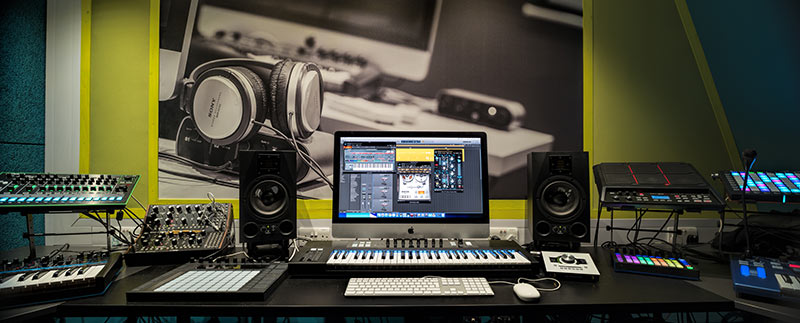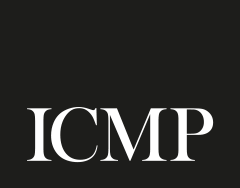Locations
London
UCAS code
W103
Start date
15th September 2025
Course length
3 Years
COURSE OVERVIEW
In the dynamic BA (Hons) Electronic Music Production degree, you’ll learn how to use a range of innovative audio technologies as you collaborate with fellow composers, producers, DJs and sound designers across the course.
Over three years of study on this electronic music course in London, you’ll gain insight into the digital craftsmanship that shapes today’s electronic music scene, as you delve into the multitude of techniques and approaches used by iconic electronic music artists.
Focusing on processing, sampling, synthesis, sound design, mixing and mastering, you’ll achieve profound technical expertise while cultivating your creative and critical thinking, and defining your unique artistic identity as an electronic music producer/artist or performer.
During your time with us, you’ll explore a variety of diverse music delivery methods and cutting-edge computer-based technologies. You’ll gain essential skills in listening, ideation, workflow mastery and project management and, in preparation for a sustainable career in electronic music, discover the revenue streams of today’s ever-changing music landscape.

On this electronic music production course, you’ll also explore the fundamentals of marketing and branding, creating a marketing plan to propel your career as an electronic music artist or DJ in today’s music and entertainment industry.
Across all three years of your degree, you’ll regularly connect and collaborate with fellow students on the course, and across ICMP’s rich talent pool, to create electronic music compositions and present live performances. You’ll also engage in sessions hosted by guest speakers from the world of electronic music – across creative, technical and business fields – each offering knowledge, wisdom and valuable music industry perspectives, plus suggestions on how to amplify your creative output.
![]() The global dance music business is now firmly in its post-pandemic growth phase with 17% revenue growth in 2023 and a total industry valuation reaching $11.8 billion with notable growth particularly across festivals / clubs, recordings, and publishing.
The global dance music business is now firmly in its post-pandemic growth phase with 17% revenue growth in 2023 and a total industry valuation reaching $11.8 billion with notable growth particularly across festivals / clubs, recordings, and publishing.
International Music Summit Report 2024
If you’re keen to launch your professional career as an electronic music performer or are looking to get involved in the world of electronic music composition, beat making or sample pack creation, you’ll graduate from our electronic music production school as a confident artist/producer, equipped with the skills and knowledge to succeed in the buzzing world of electronic music production.
FEES & FUNDING
Taking an event management degree course at ICMP makes financial sense, with the fees for ICMP music degrees the same as those at many traditional universities – making studying music at ICMP in London great value as well as great fun.
Course fees: UK students | EU/EEA/International students
Student Finance: Please visit our Fees pages for information on access to student loans.
Programme Specification | Programme Handbook | Terms and conditions

Successful completion of the BA (Hons) Electronic Music Production degree leads to the award of Bachelor of Arts degree by The Institute of Contemporary Music Performance.
Experience ICMP in-person with our
Open Day in London
Featuring information about this course, the many benefits of studying here, tour our facilities and much more.
You can also join our online event or book a personalised tour.
Key facts
- Prepare for a career as an electronic music artist, DJ, producer or sound designer.
- Develop your knowledge of electronic music performance tools.
- Explore your sound with ICMP’s extensive and well-maintained hardware and software collections
- Elevate your skills in mixing, sampling, processing, synthesis sound design and more.
- Work on real-world mixing projects with esteemed industry experts.
- Understand promotion, copyright, marketing and branding – all in the context of the electronic music industry.
- Create a professional music portfolio and marketing plan.
- Learn from leading electronic music composers, producers and sound designers.
- Connect with the wider London music industry to build an impressive musical network.
- Graduate career-ready for a smooth transition into electronic music production and it’s many associated scenes.
UCAS CODES
- Course Code: W103
- Institution Code: i25
- View course on UCAS

